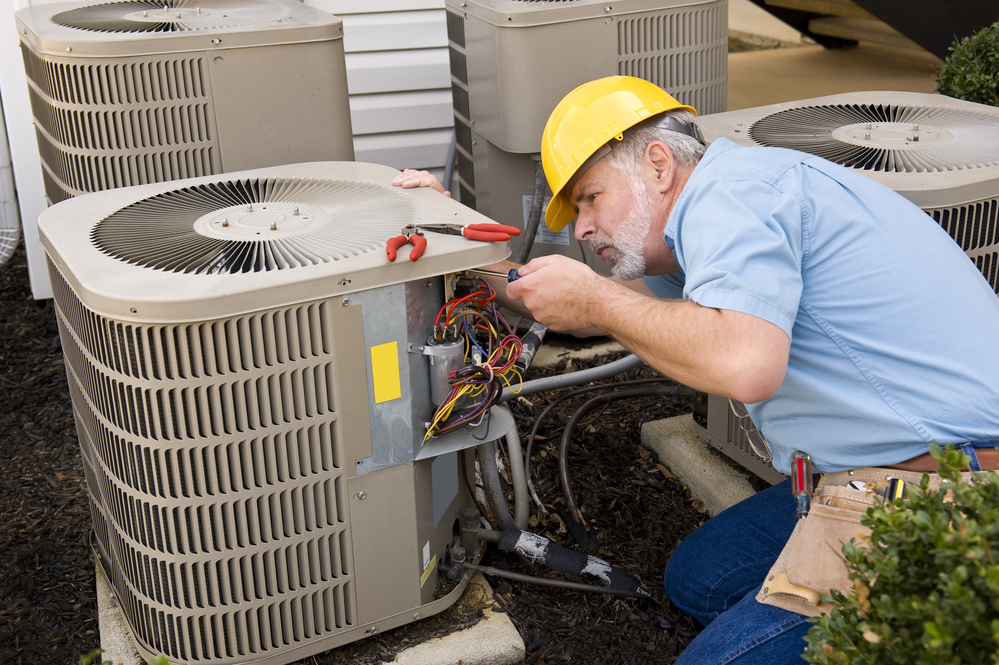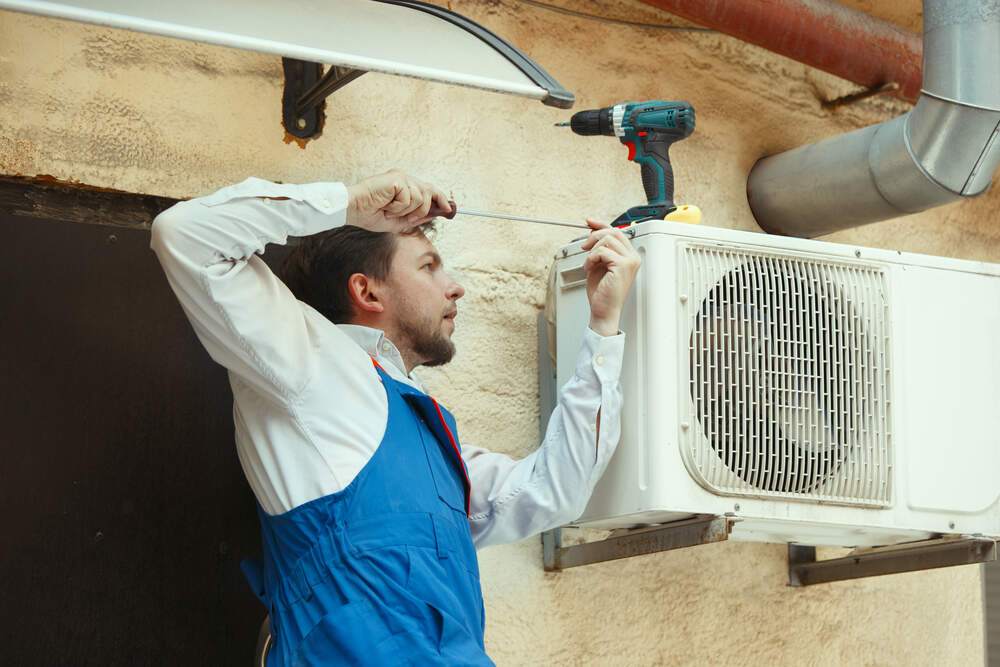If you’ve ever bought a new HVAC unit, you know that there is often a short-term warranty on the unit. In some cases, the manufacturer will guarantee the system’s continued performance, so any faults that occur under this coverage don’t cost you anything. Similarly, HVAC contractors may guarantee their work, thus giving you protection in case there were any unnoticed problems during the installation. What these plans have in common is that they only last for a limited period. Generally, these 1-10 years coverage warranties will protect you against the worst for a period, but afterward, you’re expected to cover the costs yourself. Those who would like additional protection, however, may enroll in an HVAC maintenance agreement to protect their investment and keep their home comfortable year-round for many years to come.
Advantages of an HVAC Maintenance Agreement Plan
These agreements are designed to provide ongoing support for HVAC systems. If you’re a homeowner, you may occasionally receive unexpected expenses. When big-ticket items such as your roof or HVAC system need emergency maintenance, it can easily cost thousands of dollars that don’t fit into your monthly budget. A routine HVAC maintenance can help you avoid these unexpected costs in two ways:
First, the ongoing maintenance that comes with a maintenance agreement can identify potential issues with your HVAC system before they manifest into emergency repairs. Your technicians can identify the trouble spots and make spot fixes or minor repairs that will prevent the problem from worsening. As these contractors are familiar with your specific system, they can also identify when something has changed that may be a sign of future issues. Additionally, routine maintenance ensures that your system stays in better condition and is less likely to fail suddenly.

Second, these agreements can include an “insurance” component, wherein the HVAC contractor would cover the cost of parts, labor, or both for any system repairs that you need. These comprehensive contracts are ideal for those who don’t want to be caught by surprise with a major expense, as the contractor will handle the repairs for you without any special billing. Some people prefer the peace of mind that comes from knowing that regardless of anything that happens to their HVAC system, it will be repaired without needing additional expenditures.
The Costs Associated with These Agreements
Nothing good comes without a cost, and HVAC service agreements are no exception. While they offer the advantages listed above, there are significant costs associated with them. These agreements include periodic charges regardless of any service conducted. If you routinely need preventive maintenance, then it’s easy to justify these expenses. On the other hand, more comprehensive policies tend to be more expensive. The policies that cover all parts and labor expenses regardless of the problem’s cause tend to be the most premium options and are the most expensive.
Many people appreciate the comfort of having full coverage when a problem occurs with their HVAC system, but in the months or years before using that coverage, it can be a struggle to maintain the expense. Less expensive systems may not warrant the full coverage, either, as the cost to replace the system might not exceed the cost of maintenance coverage. On the other hand, if you have a highly efficient system that uses the latest technology, you may find that periodic repairs cost far more than a preventive maintenance contract. When in doubt, you can get quotes from a local HVAC contractor and seek their professional opinion regarding how much value you’re likely to get from such a contract.
How to Determine Which Contractors You Should Trust with an HVAC Maintenance Agreement
Ultimately, you’ll decide on which contractor to use based on the contract cost and the comfort level they give you. The best contractors are those who give you well-formed advice that helps you save money. No matter what happens, your system will cost money to repair, so an HVAC maintenance agreement can simplify the process. These agreements are impacted by the amount of coverage you need, the kind of system and number of units, how large the system is, how advanced its components are, how accessible the system is, and how far you are from the contractor. When each of these factors are considered, your contractor can deliver a reliable quote.
There are also a few ways that you can distinguish between credentialed contractors. First, ask them for references. If they consistently do good work, then the homeowners they’ve helped in the past should be able to vouch for their quality. You can also look for online reviews to see what kind of organic feedback they’re receiving. Finally, you can rely on word-of-mouth if your family or other people in your neighborhood have used the contractor before. Remember not to commit to any service agreements with a contractor that doesn’t make you feel comfortable. After all, the point of this agreement is to give you security, so you should only work with those whom you trust.
Frequently Asked Question
1. What is an HVAC maintenance agreement and how does it benefit homeowners?
An HVAC maintenance agreement is a service contract that offers regular check-ups and minor repairs to keep your heating and cooling systems running smoothly. For homeowners, this means fewer unexpected breakdowns, longer system lifespan, and improved energy efficiency. It’s like getting a wellness checkup for your HVAC, catching issues before they turn into costly problems. Over time, this can save you thousands in repair or replacement costs.
2. How often should I schedule HVAC maintenance under an agreement?
Most HVAC maintenance agreements include biannual service—once before the cooling season and once before heating kicks in. This ensures your system runs efficiently year-round. By staying proactive, you prevent wear and tear, boost energy efficiency, and avoid those inconvenient mid-summer or winter breakdowns. With regular checks, small issues are fixed before they turn into major repairs.
3. Do HVAC maintenance agreements save on energy costs?
Yes, absolutely. A well-maintained HVAC system operates at peak efficiency, often reducing energy bills by up to 20%. When your system is clean, with properly working parts, it doesn’t need to work as hard to heat or cool your home. Over time, you’ll notice lower utility bills as the system runs more efficiently, saving you money each month.
4. What’s included in a typical HVAC maintenance agreement?
An HVAC maintenance agreement usually covers inspections, filter changes, cleaning coils, checking refrigerant levels, and tightening electrical connections. Some agreements might also include priority service, discounts on repairs, and no-cost labor for emergency fixes. These comprehensive agreements are designed to keep your system in top shape, ensuring minimal downtime and better air quality in your home.
5. How do I know if an HVAC maintenance agreement is worth it for my system?
If you have an older or high-tech HVAC system, an agreement can save you big in the long run. These systems require more frequent maintenance, and the agreement ensures they’re always in tip-top condition. Additionally, if your system is still under warranty, an HVAC service plan can help ensure that you’re following manufacturer guidelines to keep that warranty intact.
6. What are the risks of not having an HVAC maintenance agreement?
Without an HVAC maintenance agreement, you’re more likely to face unexpected repairs, higher energy bills, and even system failure. Ignoring routine maintenance can lead to clogged filters, dirty coils, and worn-out parts that reduce efficiency. Eventually, this lack of care could lead to a breakdown, often requiring expensive emergency repairs or even a full system replacement.
7. Can an HVAC maintenance agreement extend the life of my system?
Absolutely! Regular maintenance checks identify small issues before they turn into larger, costly problems. This keeps your HVAC system running smoothly for years longer than if you ignored maintenance. Most systems last about 10-15 years, but with an agreement in place, you might be able to push that lifespan even further, saving money on replacements down the road.
8. What should I consider when choosing an HVAC contractor for a maintenance agreement?
When selecting an HVAC contractor for a maintenance agreement, consider their reputation, online reviews, and years of experience. Check for certifications, ask for references, and make sure they offer comprehensive plans that cover both preventive maintenance and repairs. Contractors with good reviews and a solid history of reliable service will give you peace of mind knowing your HVAC system is in good hands.
9. Does an HVAC maintenance agreement cover emergency repairs?
It depends on the agreement. Some HVAC maintenance agreements include emergency repairs, covering both parts and labor, so you’re not hit with unexpected expenses. Other plans may offer priority service, meaning you’ll get faster repairs, but you might still have to cover some costs. Always review the terms carefully to understand what’s covered.
10. How much does an HVAC maintenance agreement typically cost?
The cost of an HVAC maintenance agreement varies depending on the level of coverage, but most plans range from $150 to $500 per year. Comprehensive agreements that cover both preventive maintenance and repairs will be on the higher end, while basic plans focusing on inspections and tune-ups are more affordable. Compare options and choose what best fits your needs and budget.



